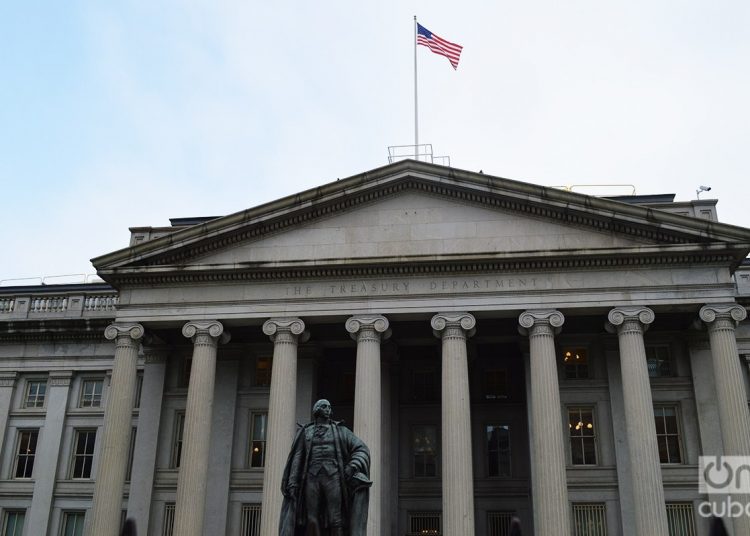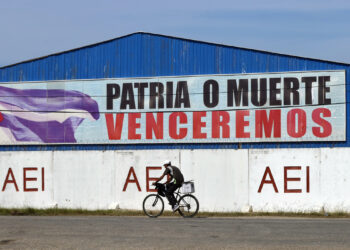The U.S. Department of the Treasury announced this Wednesday the imposition of sanctions against the Cuban state-owned enterprise Cubametales for its continued import of Venezuelan crude oil and support for the government of Venezuelan President Nicolás Maduro.
Secretary of the Treasury Steven Mnuchin said in a press release that Maduro relies on Cuba to stay in power, buying military equipment and intelligence in exchange for oil.
He added that the sanctions “will disrupt Maduro’s attempts to use Venezuela’s oil as a bargaining tool to help his supporters purchase protection from Cuba and other malign foreign actors.”
Cubametales is responsible for guaranteeing all imports and exports of fuel to and from Cuba, according to the U.S. Government.
https://twitter.com/USTreasury/status/1146426199482261504?ref_src=twsrc%5Etfw%7Ctwcamp%5Etweetembed%7Ctwterm%5E1146426199482261504&ref_url=https%3A%2F%2Foncubanews.1eye.us%2Fcuba-ee-uu%2Feeuu-sanciona-a-empresa-cubametales-por-comprar-crudo-de-venezuela%2F
As a result of this measure, assets that the company may have under U.S. jurisdiction are frozen and financial transactions with U.S. entities are prohibited.
The Treasury Department noted that since January 2019, when it announced sanctions against the state-owned company Petroleos de Venezuela, S.A. (PDVSA), Cubametales and other Cuba-based entities have continued to support Maduro through oil shipments from Venezuela.
Likewise, Washington indicated that it had delisted PB Tankers S.p.A. (PB Tankers), based in Italy, from its blacklist after it broke its commercial relations with Cubametales.
In this sense, Mnuchin stressed that the delisting of PB Tankers is a reminder that “U.S. sanctions need not be permanent.”
Since he arrived in the White House in January 2017, U.S. President Donald Trump has increased pressure on Caracas and applied economic sanctions to more than 100 Venezuelan officials and senior officials close to Maduro, among them his wife, First Lady Cilia Flores.
It has also focused on Venezuela’s main source of income, oil, with forceful sanctions against the state-owned oil company PDVSA and pressured with the revocation of visas to Venezuelan officials.
Venezuela has been experiencing a period of political tension since last January, when Maduro swore a new six-year term in office that is not recognized by the opposition or part of the international community and, in response, opposition leader Juan Guaidó, president of Parliament, proclaimed himself interim president of the country.
The United States was the first nation to recognize Guaidó as interim head of state, and it was later joined by 50 countries, most of them from Latin America.










